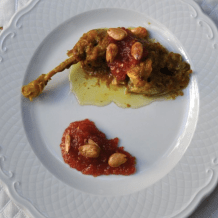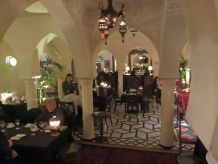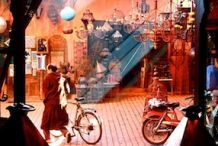3 Female Pioneers Who Led Change in Morocco’s Patriarchal Society
Morocco has birthed a generation of women who have made significant contributions to the development of the country. In this patriarchal society, the work of Morocco’s mothers, workers, artists, scientists, weavers, artisans, and leaders are often overshadowed. When the idea of a Women’s Museum came to light it set off like a brush storm across the nation.
In September 2018, Marrakech’s Musee De La Femme (Women’s Museum) opened its doors and celebrated the first cultural initiative of its kind in North Africa. The museum aims to preserve the culture of Moroccan women. Among the talent presented is Morocco’s first female pilot Touria Chaoui and French-Moroccan anthropological photographer and video artist Leila Alaoui.
“The Women Are The Ones Who Write The History Of The World! There Has To Be A Women’s Museum In Every Country Of This World”. – Shirin Ebadi, winner of Nobel Peace Prize (2003), official godmother of IAWM
Until September 30, 2019, Musee De La Femme will feature an exhibition called Pioneer Women. The exhibit highlights the work and achievements of three Moroccan women who have laid the foundation for contemporary Morocco.
Visitors are invited to explore the museum and learn about three Moroccan talents: Malika Al-Fassi, a politician and an education advocate; Izza Genini, a documentary filmmaker; and Rachida Touijri, a self-taught painter. The exhibits are complemented by a traditional Moroccan fashion and textile collection.
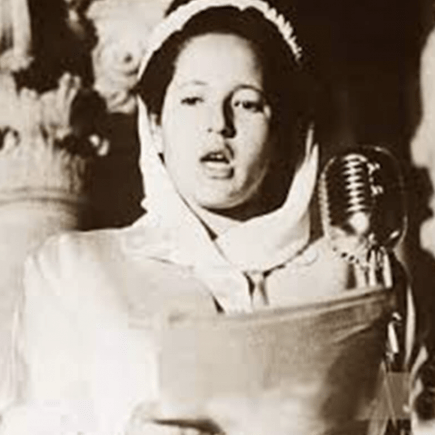
Malika Al-Fassi, Politician and Education Advocate (1919-2007)
Malika al-Fassi was a Moroccan writer and nationalist dedicated to fighting for freedom, justice, and equality. She was born and raised in Fes. Al-Fassi’s family members were nationalists and valued education. From an early age, Al Fassi was considered strong and active in her beliefs against defeatism. Her father Cadi El Mehdi El Fassi saw great potential in his daughter. He provided her the same education as her two brothers. As a teenager, Al-Fassi noticed an injustice published in the magazine Al-Maghrib. Her efforts to refute the text were well received. She became the first female in Morocco to achieve a journalist feat of this kind.
In 1937, Al Fassi joined the Nationalist Movement. A strong proponent for women’s rights, she was the only one of 66 signatories to vote for the Manifesto of Independence (1944). The document fought the case for Moroccan women’s liberties. Former foreign minister and secretary-general of the Istiqlal Party Boucett said “she showed strength and a rare maturity for her young age. Ms. El Fassi is an exceptional woman. She fought for national ideals. With her husband, she showed tenacity for the liberation of the country. Long before independence, she played a major role in promoting women’s rights, including the right to education and teaching.”
Al Fassi also wrote plays, short novels like La Victime and Dhikrayat bi-Mathabat Sira Dhatiya (Biography of Memories). The latter was dedicated to young women. Al Fassi’s articles appeared in Majellate El Maghrib of Saleh Missa, Rissalate El Maghrib of Saïd Hajji, and the daily newspaper El Alam. She wrote under the pseudonym El Fatate and after she was married, she used the name Bahitate El Hadira.
On January 11, 2005, King Mohammed VI recognized Al Fassi. The beloved feminist passed away on May 12, 2007. She is buried at the Mausoleum Hassan II in Rabat.
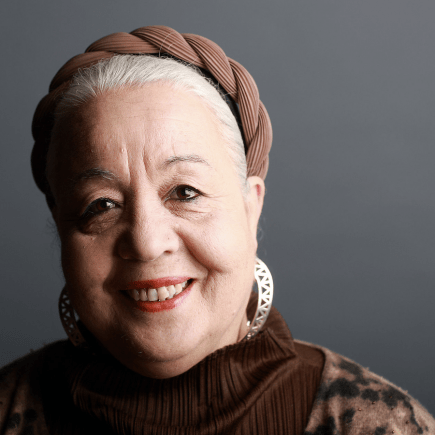
Documentary Filmmaker Izza Genini (1942-Present)
Izza Genini is a Casablanca born documentary film producer and director who currently lives in Paris. Her Jewish Moroccan heritage inspired her to create films like Retrouver Oulad Moumen (Return To The Homeland). The film was set in the olives grooves of Oulad Moumen, a village on the outskirts of Marrakech. It offers insight into a Sephardic family living an Arabic-Berber coexistence. Genini’s films consistently aim to preserve Moroccan heritage as well as raise awareness for the historical and cultural role of Judaism in Morocco.
Retrouver Oulad Moumen moves through different time periods. It tells the story of fifty family members traveling from Morocco, France, America, Canada, Mexico, Italy, and Israel to the Village Oulad Moumen for a reunion. In many ways, the film is an autobiographic tale. Genini’s own parents moved to Paris in 1960. She followed them and pursued an education at the Sorbonne and Ecole des Langues Orientales. She lived in France for over a decade. By 1973, Izza had created the company SOGEAV. Her company worked to produce and distribute African films to the international market. Upon returning to Morocco she realized how disconnected she felt and embarked on a project to reintegrate herself and re-identify.
Genini’s project was titled Maroc Corps et Ame (Project Morocco Body and Soul) and it launched her career as a film documentarian. Between 1987 and 1992 Izza created ten films featuring indigenous and folkloric music from various regions in Morocco. She also shared aspects of Jewish-Morocco.
The project was screened all over the world including at the DOKUARTS Festival in Berlin. Viewers were able to discover Moroccan heritage.
“In this reintegration and re-identification of my culture, the people took my hand. Most of the musicians in the films, I spent moments with them without knowing that I would make a film with them,” claims Izza.” ” It was really something I received and wanted to share the process. I had no idea it would be a work for memory, it’s just my emotion and feelings that drove me to make this work,” she added. “Everything I have done was by instinct. Through these songs and rhythms, I found my own memories and learned about my background. Nothing was intentional. For me it was natural I was showing something I was experiencing myself,” she explained.
In 2012, the American Sephardi Federation presented Izza with the POMEGRANATE lifetime achievement. In May 2018, the Cinema Ritz in Casablanca, in collaboration with AnouArts organized ” A Whole Week of Izza”. Moroccan film lovers could enjoy the director’s love and passion for Morocco via the lens of art and culture.
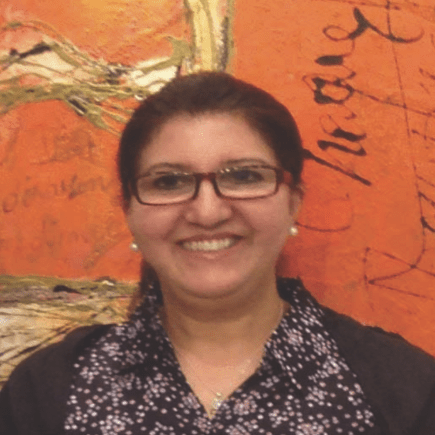
Artist Rachida Touijri (1957-Present)
Rachida Touijri is a self-taught painter and chemical engineer from El Jadida. She applies her knowledge of chemicals and matter to create work that is abstract and mystical in nature. Her paintings are marked with fuzzy faces and silhouettes. “My favorite theme is the relationship of the man with his entourage and elsewhere. I do not paint to please nor to respond to decorative desires but to give meaning to my vision of being.”
In April 2019, the Dar Al Maghrib Moroccan Cultural Center in Montreal Canada exhibited Touijri’s work. Her painting series focused on highlighting women in contemporary Moroccan society and sharing insight into the Moroccan lifestyle. The event aimed to promote the evolution of contemporary Moroccan female made art.
Touijri’s painting style is expressive and unique. “I paint with the heart to reach people emotionally. Through abstract painting, I communicate with the outside world and transmit my vision, my feelings, my emotions. I create in the immediacy of the moment, animated by my sensitivity coupled with my expressive nature. My dynamic paintings celebrate my joy of living. I am frequently influenced by the condition of the woman.” Touijri lives and works in Marrakech.
Musee De La Femme Past Exhibitions
Musee De La Femme previously showcased Rural Women, Women Artists Exhibition. (2018). Rural Women, Women Artists Exhibition explored gender inequality in Morocco by incorporating documentary films, audiovisual installations, photographs, and text. It featured three artists: Aziza El Aabidi, a self-taught artist following traditional Moroccan painting; Touria Ikbal, a poet, translator and specialist in Moroccan Sufism; and Claudine Mestari, a figurative a painter who incorporates Japanese Ikebana and trademark brushstrokes.
About:
Musee De La Femme is a member of the International Association of Women’s Museums (IAWM). The IAWM monitors the database of women’s museums worldwide, regularly co-organizes international congresses with museums and facilitates discussions between their members. IAWM also bring museums together for collective projects.
Location:
Musee De La Femme is located inside Marrakech‘s UNESCO World Heritage medina. It is near the Ben Youssef Medersa, mosque, and the 12th century Almoravid Koubba.
Address: 19, Sidi Abdel Aziz street, Souk Jeld 40030 Marrakech. Open daily 9.30am-6.30pm. Phone +212 524 -38-11-29. Rates: 30 DH ($4 USD).

